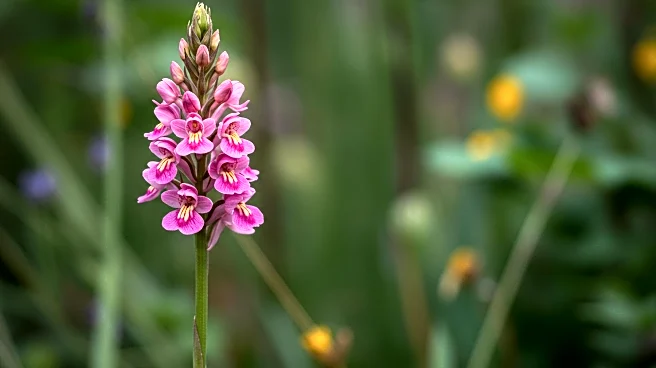What's Happening?
A study has revealed the northward expansion of the Mediterranean orchid Ophrys apifera, driven by climate change. The research highlights the genetic and ecological adaptations of this species, which is increasingly found in northern regions. The orchid's ability to self-pollinate has facilitated its spread, compensating for the absence of pollinators in new areas. The study also notes the genetic diversity within populations, suggesting a complex interaction between genetic traits and environmental factors. This expansion is indicative of broader ecological shifts caused by global warming, affecting plant distribution and biodiversity.
Why It's Important?
The northward movement of Ophrys apifera serves as a case study for understanding the impacts of climate change on plant species distribution. As global temperatures rise, many species are forced to adapt by shifting their habitats. This has significant implications for biodiversity, as new ecological interactions emerge and existing ones are disrupted. The study underscores the need for conservation strategies that account for these shifts, ensuring the protection of both native and newly established species. Additionally, it highlights the importance of genetic diversity in enabling species to adapt to changing environments, which is crucial for their long-term survival.
What's Next?
Future research will likely focus on monitoring the continued expansion of Ophrys apifera and other species affected by climate change. Conservation efforts may need to adapt to these changes, potentially involving the protection of new habitats and the management of genetic resources. Understanding the ecological and genetic factors driving these shifts will be essential for developing effective conservation strategies. Additionally, further studies could explore the role of mycorrhizal fungi and other ecological interactions in supporting the survival and spread of these species in new environments.








